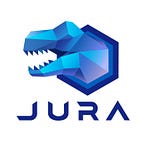Three Ways Blockchain Is Disrupting The Recruitment Sector
The most obvious way in which blockchain might add value to the world of talent acquisition is by providing an alternative method for checking academic credentials. A number of colleges and universities around the world, some with distinguished — and verifiable — pedigrees, have started to use blockchain to give their graduates ownership of their academic credentials. This year, for example, all of MIT’s graduates will receive digital copies of their diplomas as well as the time-honoured paper version. Other schools in the U.S., Australia, and Europe are following suit.
While there are many companies that currently perform educational background checks, they could potentially be done for little cost and in almost no time using blockchain. At MIT, students downloaded an app called Blockcerts Wallet that “enables students to quickly and easily get a verifiable, tamper-proof version of their diploma that they can share with employers, schools, family, and friends,” according to MIT News.
So in this article, we will talk about three ways blockchain is disrupting recruitment.
1. Credential Verification
Everyone knows it’s wrong to lie on a resume but most of the candidates lie on their resumes. In fact, according to CareerBuilder, 75% of the HR managers interviewed have caught candidates lie.
A wonderful solution to this problem is the implementation of blockchain-based record-keeping. Blockchain will make it impossible for the candidate to falsify information on their resumes. It would be simpler for the employers to get accurate information from the academic institutions as the data flow is now automated under the blockchain. Employers will have more confidence in their hiring decisions and will be able to find a good candidate for their firms.
2. Reference Checks/Work History Verification
Along with falsifying resume information, many also falsify their employment histories.
Most recruiters and hiring managers currently rely on reference checks to ensure they get the full, accurate picture of a candidate’s career to date. We all know how inefficient that process can be. A few rounds of phone tag are inevitable. Some references won’t say much beyond “yes.” Sometimes, the candidate’s supervisor has moved on and there is no one left at the company who can speak confidently on the candidate’s performance as an employee.
As blockchain can confirm candidates’ credentials, so too can it streamline reference checks and work history verification. Imagine that in addition to certifications and academic achievements, the previously proposed blockchain also recorded information about each of a candidate’s roles: their title, tenure, supervisor, responsibilities, major achievements, and more. Once verified, the job could not be altered — preventing the candidate from going back later and changing the truth.
3. Decentralized Recruiting
Perhaps the most radical change of all is the way blockchain can decentralize recruiting, utterly transforming the traditional recruitment process.
In your average recruiting process, an employer contracts with a single recruiter or recruiting firm, who then takes on everything from sourcing to submitting candidates. This process works well enough, but some companies are making it even more efficient by bringing blockchain into the equation.
Through a crowdsourced recruitment marketplace, participants can earn tokens for every action that they take: from posting jobs & submitting candidates to referring friends and, of course, making placements. As everyone is financially motivated, employers get access to a wider range of recruiters and a bigger pool of talent. Even if their candidate does not get the job, they still make money.
This all sounds very appealing but we’re still far away from widespread adoption of blockchain technology. There are a number of technological and operational issues that we still have to figure out and till then, we’ll have to rely on traditional methods of recruiting people.
— Jura Protocol
Official homepage — https://jura.network
Official English Telegram — https://t.me/juranetwork
Telegram ANN channel — https://t.me/juranetworkann
Official Twitter — https://twitter.com/JuraProtocol
Official Medium — https://medium.com/@juraprotocol
Official Vietnam Telegram — https://t.me/JuraVietnam
Official Korea Telegram — https://t.me/jurakoreangroup
